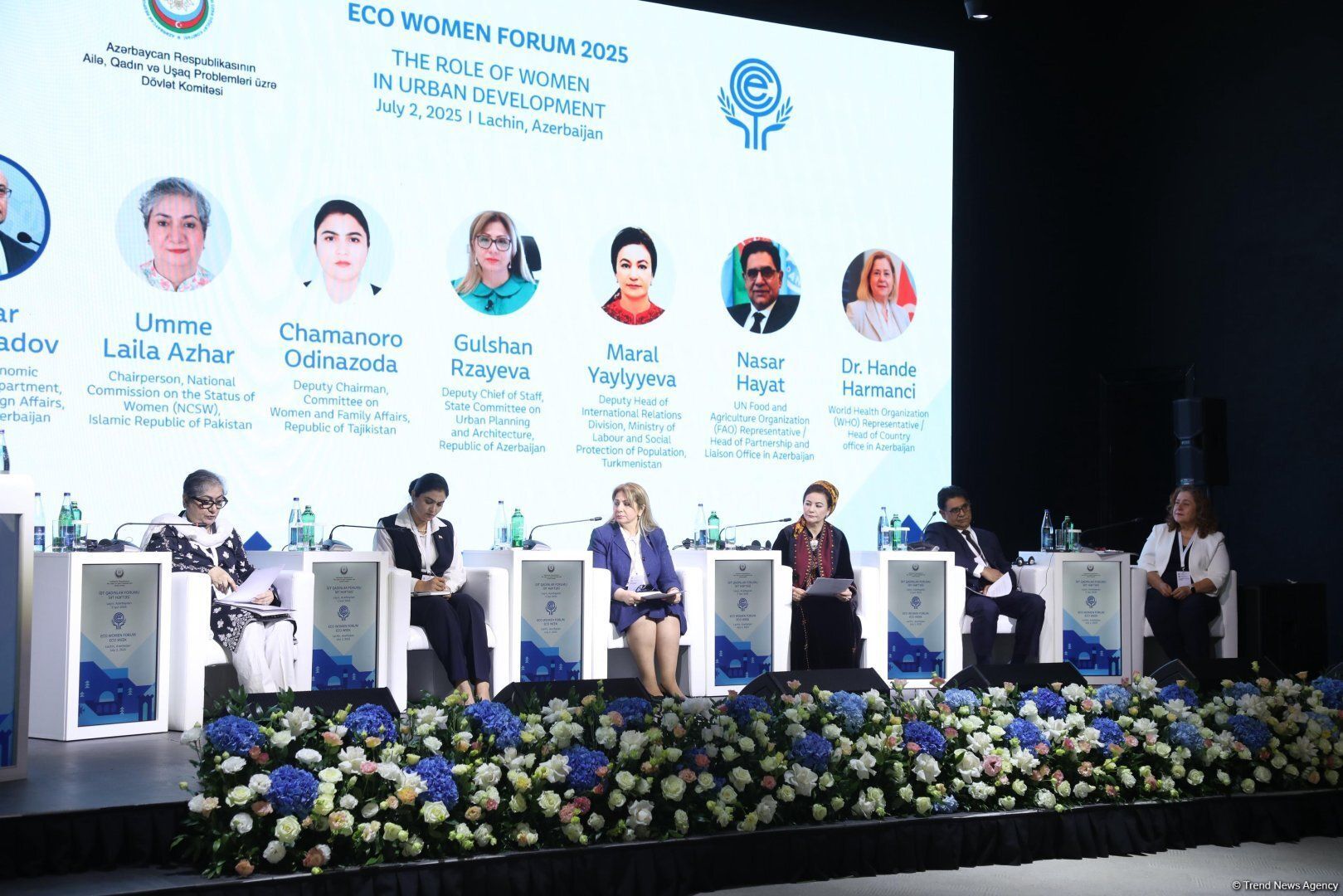The Economic Cooperation Organization (ECO) Women’s Forum, held in Lachin as part of ECO Week, spotlighted the transformative role of women in shaping sustainable and inclusive cities. A key panel session titled “The Role of Women in Urban Development” brought together regional and international experts to explore how female leadership can guide urban planning in the face of climate and social challenges.
Moderated by Elmar Mammadov, Head of the Economic Cooperation Department at Azerbaijan’s Ministry of Foreign Affairs, the session tackled questions such as: “How can women’s leadership guide sustainable urban planning?” and “What is the role of women in building healthy and climate-resilient cities?”
Participants included:
Ume Laila Azhar, Chair of Pakistan’s National Commission on the Status of Women
Chamanoro Odinazoda, Deputy Chair of Tajikistan’s Committee on Women and Family Affairs
Gulshan Rzayeva, Deputy Chief of Staff at Azerbaijan’s State Committee for Urban Planning and Architecture
Maral Yayliyeva, Deputy Head of International Relations at Turkmenistan’s Ministry of Labor and Social Protection
Nasar Hayat, FAO Representative in Azerbaijan
Hande Harmancı, WHO Representative in Azerbaijan
Key Highlights:
Elmar Mammadov proposed the creation of a new ECO platform focused on urban development, citing Azerbaijan’s leadership during COP29 and a joint declaration endorsed by 54 countries and 100 cities.
Gulshan Rzayeva emphasized that by 2040, 70% of the global population will live in cities. She stressed the need for inclusive urban planning, especially in liberated territories, and highlighted Azerbaijan’s efforts to integrate international expertise and host the World Urban Forum in Baku in May 2026.
Nasar Hayat of FAO underlined the importance of agriculture in sustainable urbanization and promoted the Green Cities Initiative, which aims to reach 1,000 cities globally by 2030.
Hande Harmancı of WHO noted that women are disproportionately affected by climate change and called for their greater representation in city governance. She expressed hope that Azerbaijan would join the Healthy Cities Initiative, particularly in the Karabakh region.
The session concluded with a lively Q&A, reinforcing the consensus that empowering women is essential for building resilient, equitable, and livable cities.

